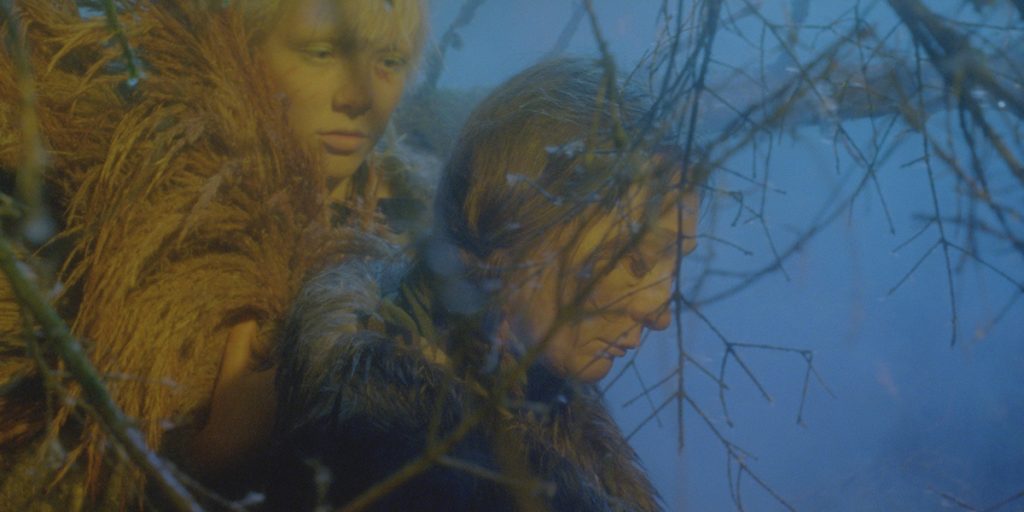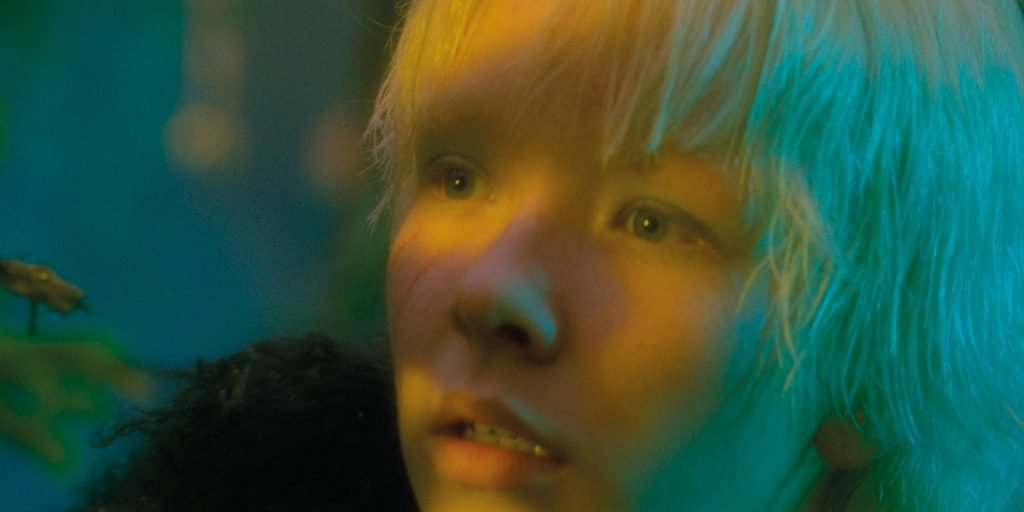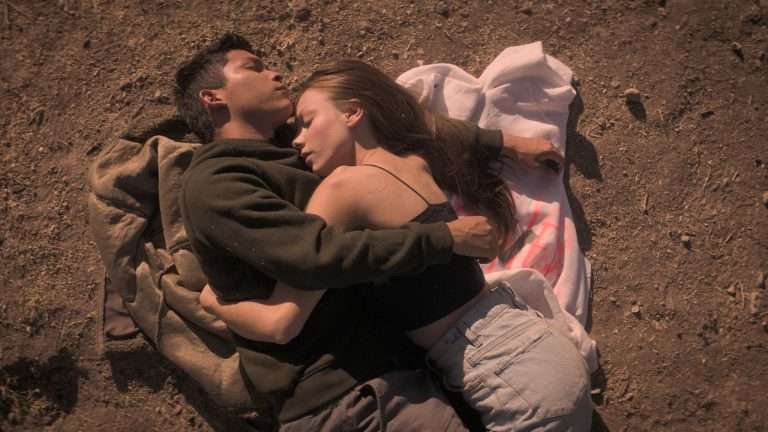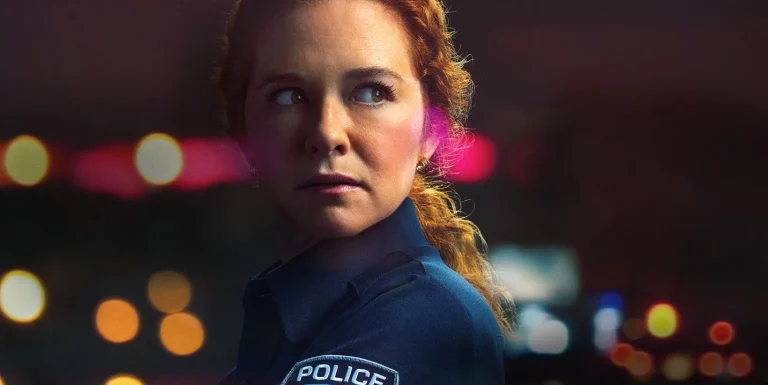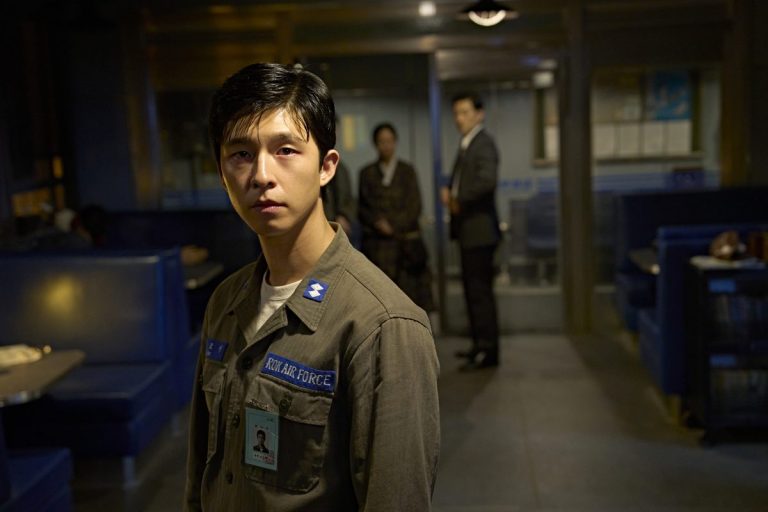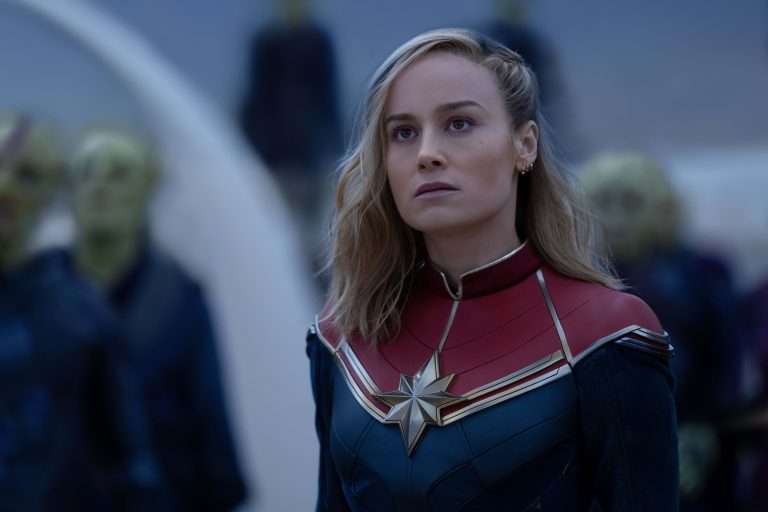After Blue (2021) Movie Ending Explained & Themes Analysed: In his second feature film, ‘After Blue (Dirty Paradise),’ Bertrand Mandico continues his madcap creation of endlessly fascinating psychedelic worlds. Here, he revives a genre that was a cult niche in the ’70s, namely the acid western, and by casting only women, somewhat like Netflix’s criminally underrated miniseries, ‘Godless,’ while throwing in sci-fi and fantasy, lets it become a singularly unique phantasmagoric landscape. It doesn’t quite have that alarming combination of tender melancholy with sudden bursts of extreme violence that ‘The Wild Boys’ did and, at 128 minutes, is a somewhat tiring sensory overload. Still, through its highly tactile planet, presented like a lurid fever dream, he reminds us with ‘After Blue’ that he’s a figure sure to go down as a visionary in the future.
After Blue (2022) Movie Plot Summary & Synopsis:
In a voiceover narrative that lasts throughout the film, Roxy tells an unnamed and faceless person about the history of her planet. When Earth had become uninhabitable, humanity found an inhabitable planet in another system, whose flora and fauna was found to be harmless, naming it After Blue. The atmosphere of After Blue turned out to be toxic for men, making it possible only for women (ovarian-bearers) to survive. The atmosphere on it also causes rapid growth of hair. With horses as the only animals to help them, the women create a new society without technology and exist in separate groups based on nationalities. Roxy was born through artificial insemination, as are all births on After Blue, given the complete absence of men. The girls in her village bully Roxy by calling her ‘Toxic.’
While on a beach with three girls from her village, Roxy discovers a woman buried up to her neck in the sand. She tempts Roxy like a genie, stating that she’ll grant three wishes should Roxy free her from her bondage. Roxy does and the naked woman, calling herself Kate Bush, kills the three other girls. According to Kate Bush, this is the granting of Roxy’s first wish, who wanted to simply be rid of the girls, not have them killed. A clear sexual attraction emerges between the two, and before she leaves, Roxy notices an eye above her vagina.
Back in the village, chaos erupts because of Kate Bush’s release. The militia is deployed, and the village elders inform Roxy’s mother, Zora, a hairdresser, about the ramifications of her daughter’s actions. Kate Bush’s real name is Katajena Bushovsky, a Polish criminal who was left to die by the Polish militia for her heinous crimes. Her release risks violence and chaos across the planet. As punishment for Roxy’s crime of having released her, followed by the murder of the three girls, the village elders punish Zora and her to track down Kate Bush to her lair in Mount Axia, where they’re to kill her if the militia doesn’t arrive on time. For Zora, this is a terrible punishment because she doesn’t view herself as capable of killing a person. For Roxy, it’s a fine excuse to escape their village and see After Blue beyond those confines.
So begins the mother and daughter’s journey across After Blue. Roxy is haunted by visions of the three dead girls and the erotic dreams of Kate Bush. They meet Kate’s supposed mother, who claims her daughter is invincible, and her third eye makes her special. Another person they come across is an avant-garde artist, Sternberg, who lives with a male android, Olgar-2, a replica of her former lover and an act forbidden by After Blue’s society. Her two other companions are artists, too, Climax and Kiefer.
After Blue (2022) Movie Themes Explained:
Social Regression:
The colonizers of After Blue decide not to recreate computerized technology as they view it to be the chief cause behind Earth’s undoing. They intend to keep After Blue’s ecosystem intact by neither interfering nor invading it. While this seems like a fairly reasonable approach to sustaining life in this new world, a trenchant fear amidst the settlers soon becomes apparent. When their journey begins, Roxy informs her mysterious interrogator that ‘nomadism’ is frowned upon in their society, a strange practice for people who have just settled down on an entirely new planet. Then there’s the fact that only one law exists on After Blue – a draconian desire to rid society of criminals. These societies don’t have police forces but fully-armed militias. Another strange aspect of the planet is how despite the shared tragic fate of After Blue’s settlers, they decide to create separate camps/villages on the basis of nationalities.
These arbitrary laws make After Blue’s culture far from a utopian matriarchy, an almost fascistic society denying individuality by regressing into a primitively communal state. Xenophobia is rampant. The first thing that the elders tell Zora about Kate Bush is that she’s Polish before proceeding to make a joke about how filthy the habits of the Polish are. This is followed by a dehumanizing dissection of who she is and viewing her as a product of her supposedly filthy environment. Owing to the existence of such bigotry, the discouraging of exploration may well be an attempt to keep each culture, separated on the basis of nationality, within its own bounds.
The hatred for crime is especially prominent because of Kate Bush’s indictment as some kind of a terrorist. Firstly, there’s the categorization of criminals as an entirely different species. No one ever explicitly mentions what exactly her crimes are and why she is so vehemently feared. Instead, her killing is for the peace of the ‘community spirit. An entire militia is deployed to find and kill her and her initial punishment, being buried in the sand for the waves to kill her eventually, seems positively ancient. The village elders state that Kate Bush views herself as ‘the vengeful arm of After Blue’. It can be assumed then that Kate Blue is a rebellious figure whose free-spiritedness, possibly cultural fluidity, is seen as a threat to the status quo. The one person she does befriend is Roxy, an evident outcast, again for no specific reason, and Roxy’s coming-of-age in taking on a similar role is what the rest of the film implicitly deals with. Given that the ‘Blue’ in After Blue’s name is a reference to Earth, thereby positioning it as Earth’s successor, the fact that society on it is still mired in the shallowest societal shortcomings again reiterates how not paradisical the planet is.
Gender and Sexuality:
Gender and sexuality have been key concerns of Mandico since his days as a provocative short-film auteur. The planet, After Blue, is characterized by its female-only population, a postgender world, and possibly the only reason to call it a paradise, free from Earth’s construct of gender and the consequential division caused by it. Here, pop culture’s treatment of hair as an anomaly in the female body is completely set aside by him as After Blue’s defining feature is how it catalyzes hair growth. This, in turn, leads to female characters in the film portraying strange manners of hair growth. The elders in Roxy and Zora’s village start to maintain greater amounts of hair to make Zora’s job as a hairdresser more laborious in protesting Roxy’s indirect killing of the children. One of Kate Bush’s features that Roxy most prominently remembers is her hirsute left arm, recalling it in a longing manner. For Mandico, who has always created worlds steeped in hair, bodily fluids, and genitals, this becomes a device to subvert gender binaries on this planet.
Roxy herself is a figure whose gender is constantly menaced. Firstly, her appearance itself is extremely androgynous. Then, Sternberg calls her Zora’s ‘son’ when she first meets her. She violently desires Kate Bush yet is also smitten by her encounter with Olgar-2 as being her first man, even though what she comes across is his squid-like genitalia. Olgar-2 is referred to as ‘a Louis Vuitton’ by Sternberg. The characters in the film have a habit of naming their weapons after luxury brands, depicting the remnants of consumerist practices in valuing precious objects based on their brands. Olgar, the only male in the film is the only person described as a similar commodity, a reversal of the ancient practice of objectifying female characters. Sternberg is a classic outlaw character, wilful and cocky in a manner that is rarely seen in a female character in a Western. We observe another reversal of gender dynamics when Olgar-2 asks Roxy to kill Sternberg for him because of his fear of her. Kate Bush’s third eye, which makes her incredibly unique, is placed above her genitals, which is both – Mandico exercising his provocative style and a conscious disregard for treating female genitalia’s depiction as taboo in the media.
After Blue (2022) Movie Ending Explained:
Before her departure, Kate Bush tells Roxy that she has one wish left, a wish she doesn’t make explicitly. Running into the real Kate Bush deeply disturbs Zora, who then enters a stage of denial regarding their exploit. She refuses to believe that the corpse they’re carrying isn’t Kate Bush’s, thereby meaning that the task that would re-integrate her into society isn’t done yet. Roxy vigorously shakes her mother out of this reverie, following which Zora collapses. On waking up, her ‘illusions’ have been destroyed. As they make their way back to their village, they notice corpses of the villagers strewn all over the beach. Zora speaks to Severin, one of the elders, lying about having killed Kate Bush. In a vision, Roxy sees Kate Bush lying down in the sand, calling her name. Then, she notices that she too has an eye on her pubic area, like Kate Bush, and the apparitions of the dead girls inform her that the eye is why she can see them. Mother and daughter rejoice at having killed Kate Bush, and they share a vision of the dead villagers all standing together.
In a post-credits scene, Roxy kisses Kate Bush, whose face is hollowed out from above her lips.
Though it isn’t made clear as to what exactly Roxy’s second wish was, given her sexual desire for Kate Bush, it could have been the wish for Kate Bush not to die. Zora had been a timid character from the beginning, easily coerced and manipulated. She even deferred her task of killing Kate Bush to Kiefer and Climax. She had gotten deeply inebriated at Sternberg’s place, leading to her strange behavior following the encounter. Therefore, Roxy’s assault with the truth makes her instrumental in her mother shedding off her streak of denial. The villagers being dead can be interpreted as Roxy’s final wish coming true. They forced Zora and her into this mess. And, in all probability, they were consistently rude to Roxy, as her nickname suggests. So it is natural for her to want them removed from her life and their dictatorial constraints.
Zora and Roxy’s celebration of Kate Bush’s death is again ambiguous, given that they never killed her but the vision of her lying down hints at her death, having passed the baton to Roxy, who takes her place as a new messiah. After all, she too possesses a third eye, like Kate Bush (something her mother had stated was the reason behind her uniqueness), allowing her to look into the world of the dead. Roxy promises to turn her paradise into a place for all the dead in need of love.’ Therefore, she takes on the mantle of turning After Blue into what it should’ve always been – a utopian paradise free of Earthly issues and complications. The post-credit scene, with Kate Bush’s hollowed-out face again, furthers the notion of Roxy taking over Kate Bush’s role as a rebel messiah since the latter no longer has her identity left, possibly even gouged out by Roxy.

